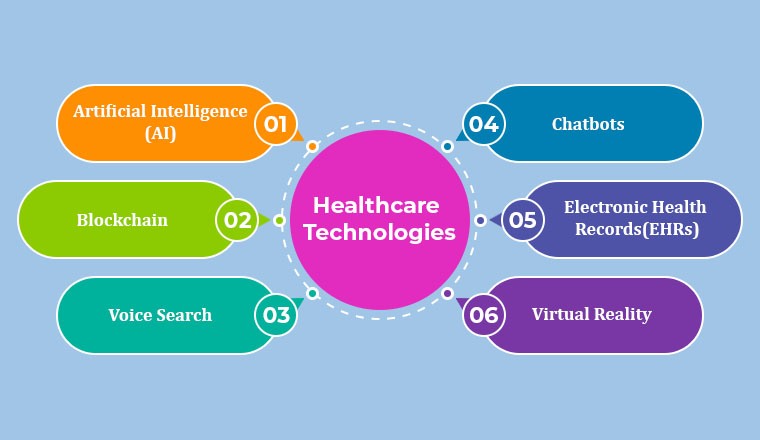How Does Technology Transform Healthcare?

How Innovations Are Revolutionizing Patient Care
The landscape of healthcare is rapidly evolving, driven by groundbreaking technological advancements that are redefining patient care, diagnostics, and treatment. As we continue into the 2020s, several key technologies are leading the charge in transforming healthcare.
The Rise of Telemedicine
Telemedicine has become a game-changer, especially in the wake of the COVID-19 pandemic. This technology allows patients to consult with healthcare providers remotely, using video conferencing and other digital tools. The convenience and accessibility of telemedicine have made it a preferred option for many, reducing the need for in-person visits and easing the burden on healthcare facilities. According to recent studies, telemedicine services have seen a significant increase, with more patients opting for virtual appointments over traditional in-office visits.
The use of artificial intelligence (AI) in telemedicine is further enhancing the quality of care. AI-driven diagnostic tools can analyze patient data in real-time, providing clinicians with valuable insights. For instance, AI algorithms can detect early signs of diseases like diabetes or heart conditions, allowing for timely interventions. This integration of AI with telemedicine is making healthcare more efficient and effective, delivering better outcomes for patients.
Electronic Health Records (EHR)
Electronic Health Records (EHR) have revolutionized the way patient information is stored, accessed, and managed. EHR systems provide a comprehensive digital record of a patient's medical history, including diagnoses, treatments, medications, and test results. This centralized and accessible data improves communication among healthcare providers, reduces medical errors, and enhances coordinated care.
With the widespread adoption of EHR, interoperability has become a critical issue. Interoperability ensures that different healthcare systems can seamlessly exchange information, providing a holistic view of a patient's health. This is particularly important for patients who receive care from multiple providers or have complex medical conditions. EHR systems equipped with advanced analytics and machine learning capabilities can predict patient outcomes, identify high-risk individuals, and suggest personalized treatment plans. These technological advancements are pivotal in improving patient care and operational efficiency within healthcare settings.
Wearable Technology
Wearable devices, such as smartwatches and fitness trackers, are playing an increasingly significant role in healthcare. These devices monitor vital signs, track physical activity, and even detect irregularities like abnormal heart rhythms. The data collected by wearables provides valuable insights into a person's health, enabling proactive healthcare management, and preventative care.
3D Printing
In the realm of medical innovation, 3D printing has emerged as a powerful tool. This technology enables the creation of custom prosthetics, implants, and even organs. For example, 3D-printed scaffolds can be used in tissue engineering to grow new body parts, offering hope to patients with organ failure. Additionally, surgeons can use 3D-printed models of a patient's anatomy to practice complex procedures, reducing the risk of complications and improving surgical outcomes.
3D printing in healthcare is not limited to physical structures. Pharmaceutical companies are exploring the use of 3D printing to create personalized medication dosages, tailoring treatments to individual patients' needs. This level of customization holds the potential to revolutionize patient care, making treatments more effective and reducing adverse reactions.
The Role of Machine Learning and Robotic Surgery
Machine learning algorithms are transforming diagnostics and treatment plans. They can analyze vast amounts of data to identify patterns and predict disease outbreaks, helping healthcare providers to make informed decisions. For instance, machine learning models can detect early signs of cancer from medical images, providing faster and more accurate diagnoses.
The integration of machine learning with wearable devices and EHR systems is creating a comprehensive healthcare ecosystem. These technologies work together to provide real-time monitoring, predictive analytics, and personalized care. Patients benefit from timely interventions, while healthcare providers gain valuable insights into patient health trends.
Robotic surgery represents another significant advancement in healthcare technology. Robotic systems allow surgeons to perform complex procedures with enhanced precision and flexibility. These robots can navigate intricate surgical sites, minimizing tissue damage and reducing recovery times for patients. According to recent studies, robotic surgery has shown promising results in various medical fields, including urology, gynecology, and cardiothoracic surgery.
Robotic-assisted surgeries are particularly beneficial for procedures that require high levels of precision, such as prostatectomies and cardiac valve repairs. The use of robotic technology in surgery is expanding, with more healthcare facilities adopting these systems to improve patient outcomes. As technology continues to advance, the integration of AI and robotic surgery will undoubtedly lead to even more innovative and effective treatments.
The Future of Healthcare Technology
As technology continues to evolve, the future of healthcare looks increasingly promising. Innovations in telemedicine, EHR, wearable technology, 3D printing, and robotic surgery are already transforming patient care. The integration of these technologies with AI and machine learning is paving the way for more personalized and effective healthcare solutions.
The adoption of these technologies is not without challenges, however. Issues such as data privacy, interoperability, and the digital divide need to be addressed to ensure equitable access to healthcare for all. As we move forward, it will be crucial for healthcare providers, policymakers, and technology companies to collaborate and address these challenges.
The impact of technology on healthcare is profound and far-reaching. It is reshaping the way we diagnose, treat, and manage diseases, ultimately leading to better patient outcomes. As we continue to embrace and innovate with these technologies, the future of healthcare looks brighter than ever. Innovation and adaptation are key to staying ahead in the rapidly changing world of healthcare, and these technological advancements are a testament to the incredible potential that lies ahead.
```
0 Response to "How Does Technology Transform Healthcare?"
Post a Comment